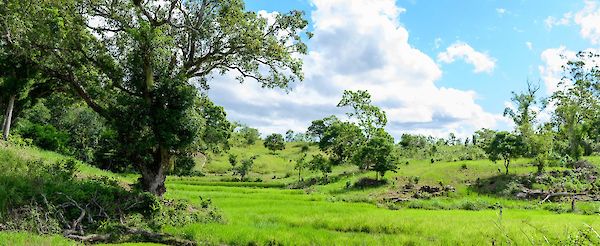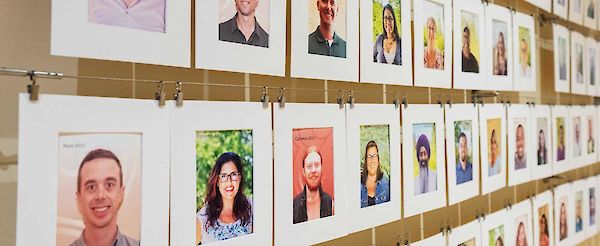Better Relationships, Better Tea: Staying Engaged in Guatemala
Being engaged with our suppliers doesn’t mean standing on the sidelines and hearing about what’s happening second-hand. Wherever possible, we like to visit – meeting people face to face, building relationships, and making ourselves available.
Having the opportunity to spend time with the people who are growing the ingredients we rely on is invaluable. As a company, it’s our responsibility to understand our supply chain, which is why we meet, face to face, with the people who grow and process our ingredients.
- Briana Buckles, Global Sustainability Manager
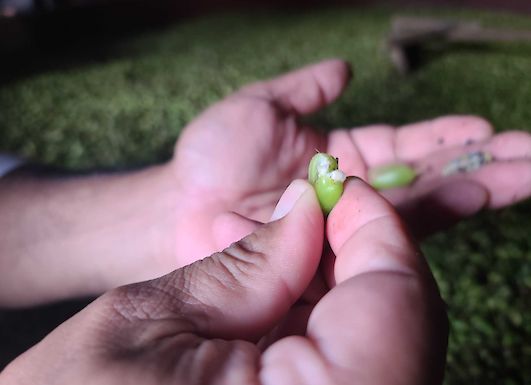
We visited Guatemala in late 2023 to see our impact in action, learning from the farmers who are on the front lines of sustainable change. That’s what a good relationship means to us: not deciding what should happen from afar, but being present: listening, learning, and supporting. It’s a global effort, and we feel it’s so worth it: knowing that every cup of Yogi Tea you drink is doing its part to build a better tea world.
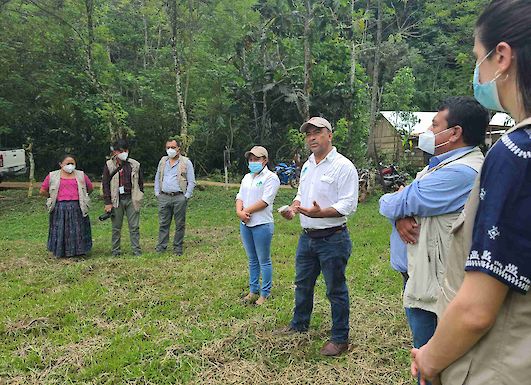
What’s happening in Guatemala?
Well, one of our key sustainability goals is to reduce our carbon footprint. An emissions audit showed that out of the ingredients we use for our delicious blends, cardamom was one where we could be most impactful. Guatemala is the biggest exporter of cardamom worldwide, so making a difference here means having a positive impact beyond our own sourcing.
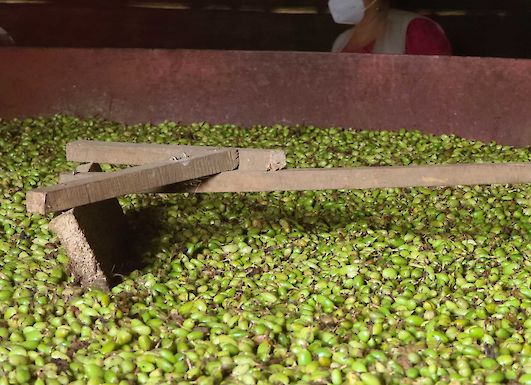
The great thing was that there was one key change to make that really boosted cardamom’s sustainability credentials: helping farmers work in harmony with their local forests.
Uniting for the good
Rather than spend years enlisting partners and planning our own intervention, we put competition aside to make a difference now. We joined our friends at Twinings who, as part of their Sourced with Care program, had already started a project alongside Mercy Corps. Their work included elegant and effective solutions: first, by replacing wood-powered dryers with gas-powered machines local forests are safe from being used for firewood. Moreover, farmers are getting trained in agroforestry techniques developed by experts from local universities. These methods enable them to cultivate top-quality cardamom by nourishing naturally forested environments instead of using them.
This work is ongoing: by the time the project wraps later in 2024, we hope that 750 farmers will have received training on crop diversification and agroforestry practices. Thanks to the improved drying equipment, their production capacity will increase, resulting in improved livelihoods, while housing and educational infrastructure is also set for a boost through this same collaboration. Local subsidies are helping with the financing and new nurseries ensure a steady supply of trees for planting.
This is far from our only collaborative sustainability project, and we’re excited to share more of them with you over the course of the year! Stay tuned for more inspiring updates: from South Africa to Nepal, we’re determined to use tea as a force for good.


